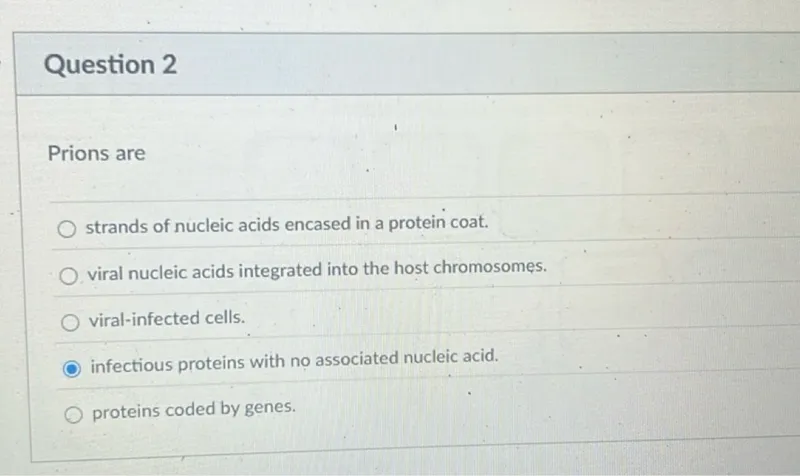Questions: Question 2 Prions are strands of nucleic acids encased in a protein coat. viral nucleic acids integrated into the host chromosomes. viral-infected cells. infectious proteins with no associated nucleic acid. proteins coded by genes.

Transcript text: Question 2
Prions are
strands of nucleic acids encased in a protein coat.
viral nucleic acids integrated into the host chromosomes.
viral-infected cells.
infectious proteins with no associated nucleic acid.
proteins coded by genes.





